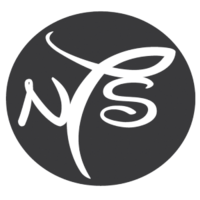
This role has a low level of AI exposure. Core skills such as adaptability, social intelligence, and complex physical tasks remain beyond the capabilities of current AI.
Explore all careersAn Instrumentation Technician ensures automated equipment operates safely, performing installation, calibration, testing, and maintenance tasks.
Get qualified to work as an Instrumentation Technician with a course recognised across Australia. Speak to a training provider to learn more.











In Australia, a full time Instrumentation Technician generally earns $1,700 per week ($88,400 annual salary) before tax. This is a median figure for full-time employees and should be considered a guide only. As you gain more experience you can expect a potentially higher salary than people who are new to the industry.
 Courses.com.au Team
Courses.com.au Team
The number of people working in this industry has remained stable over the last five years. There are currently 160 people working in this field in Australia and many of them specialise as an Instrumentation Technician. Instrumentation Technicians may find work across all regions of Australia.
Source: Australian Government Labour Market Insights
 Courses.com.au Team
Courses.com.au Team
If you’re interested in becoming an Instrumentation Technician, consider enrolling in a Certificate III in Instrumentation and Control. This course shows you how to calibrate, adjust and repair instruments used in a range of industries. You’ll also be introduced to electrotechnology equipment and circuitry. You could also consider a Certificate IV in Electrical – Instrumentation.
 Courses.com.au Team
Courses.com.au Team
Browse occupations related to Instrumentation Technician



If you're considering a career as an Instrumentation Technician, you're in luck! Tasmania offers a diverse range of Instrumentation Technician courses tailored to suit learners at various stages of their career journey. With a total of 22 courses available in the region, you can easily find one that fits your needs, whether you're just starting or looking to enhance your existing qualifications. A good place to begin is with beginner courses such as the Certificate III in Electrotechnology Electrician or the Certificate III in Instrumentation and Control, both of which can provide a solid foundation for your future career.
For those with prior experience, Tasmania also offers advanced courses that can deepen your expertise in instrumentation and control. You might want to consider the Advanced Diploma of Electrical and Instrumentation (E&I) Engineering in Mining or the Certificate IV in Electrical - Instrumentation. These programmes are designed to equip you with the skills needed to excel in various industries, including oil and gas and mining, prevalent in Tasmania's workforce.
Tasmania's unique geographical landscape provides an excellent backdrop for practical training in instrumentation and control. Courses such as the Diploma of Electrical Engineering and Diploma of Instrumentation and Control Engineering blend theoretical knowledge with hands-on experience, preparing you for the challenges you may face in the field. Moreover, training institutions in Tasmania are recognised and respected, ensuring that the skills and qualifications you earn will be valued by employers.
The wide selection of Instrumentation Technician courses in Tasmania demonstrates the state's commitment to supporting individuals in their professional development. By enrolling in one of the many vocational or higher education programmes available, you will be well on your way to a rewarding career in instrumentation. Whether you choose to specialise in areas like control systems or process technology, the courses will ensure you are well-prepared to step confidently into the workforce.